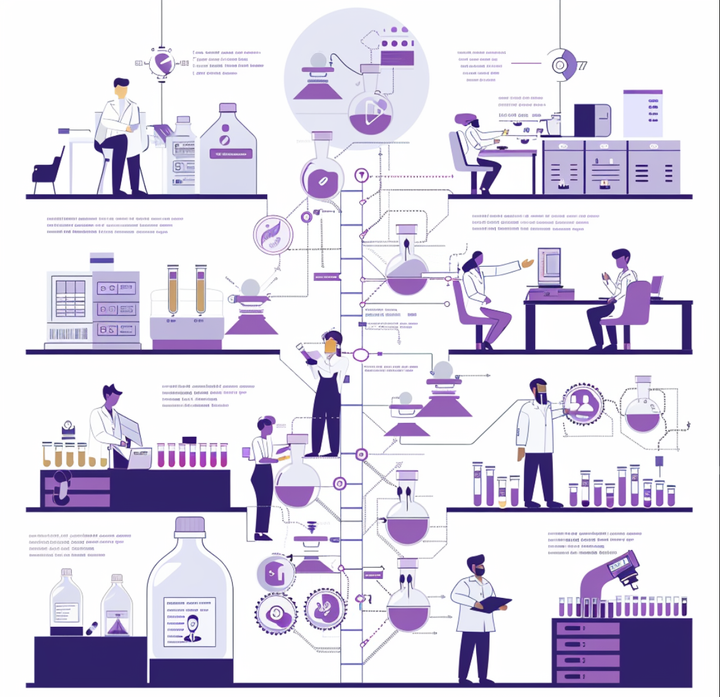5 ways to improve lab data management at your biotech.

Are you tired of floating through a galaxy of lab data, surrounded by something you know is beautiful and meaningful, with no real way to capture and harness it? Welcome to lab data management in the life sciences industry.
Data is critical for every biotech. It’s at the center of research, innovation, success, and scale. Yet there are no reliable lab management tools purpose-built for connecting data from lab instruments to the cloud and operationalizing it. And there are no industry standards for ensuring compliance and cohesiveness.
Life-saving technologies and era-defining breakthroughs won’t come from companies that are free falling through space, operating at the mercy of obsolete data processes. Here’s how to get your data strategy on solid ground.
Implement a data management system
Centralizing your data storage and management is essential. Consider a tool that not only connects internet-enabled data sources, but also analog devices like scales, thermometers etc. All your data should live in the cloud, period. This will optimize your research for your long term goals, making it easier to upload, track, access, and analyze data. Plus, find and share data points instantly when you’re in a pinch as you’re writing up a grant or compiling a lab presentation.
Standardize, standardize, standardize
Standardizing data collection and formatting across all departments and teams can greatly improve data management because it will ensure uniformity. This includes creating a consistent set of sample IDs, lab notebook entries and entities, schemas, and formats, as well as establishing protocols for data entry and validation. When it comes to data collection, consistency is key. Through standardization, clearer patterns and insights will emerge, enabling researchers to gather actionable takeaways and make decisions for next steps in their work.
Keep data safe
In the life sciences industry, most data is highly sensitive. it's crucial to implement security measures to protect against breaches and unauthorized access. Encryption, access controls, regular backups, and code versioning control are a must. You don't want to be the one responsible for a data breach or a visit from a regulatory agency.
Implementing a data management solution can play a key role here, too—not only will it organize your data, but it can also keep you up to date with compliance needs, and ensure you’re safe in the case of an audit.
Invest in data visualization and analysis tools
Let's face it: raw data can be overwhelming and unappealing if not properly presented and contextualized. By using data visualization and analysis tools like dashboards, scatter plots, heat maps, and network diagrams, you can make sense of the large amounts of data collected across your entire biotech.
Foster a culture of data management
Data management isn’t just about the tools. It's about the people, too. By providing the right tools, training, and resources for data management, and by encouraging data-driven decision making, you can build a team that knows how to turn data into your next business breakthrough. Data culture isn’t just about policies. It’s about a mindset shift that places data at the forefront of how your biotech runs.
Effective data management shouldn’t be a pipe dream. Make the potential of data clear, build the right foundation, invest in the right technology, and watch your biotech transform.




